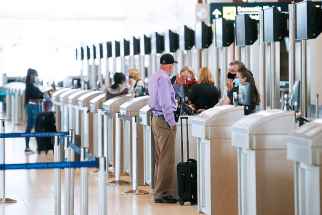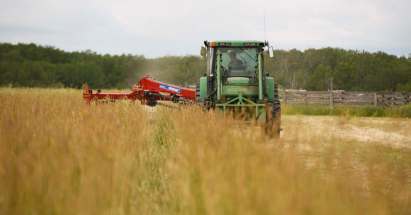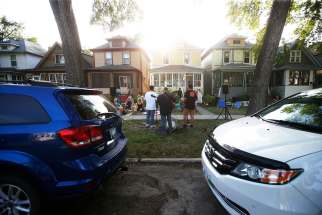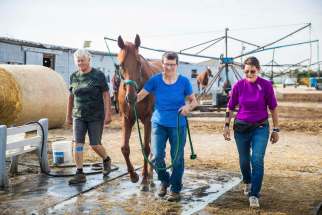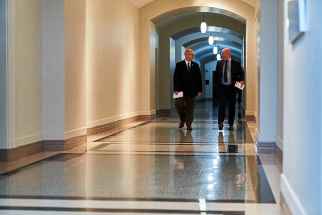Learning to live with the virus, and masks
Read this article for free:
or
Already have an account? Log in here »
To continue reading, please subscribe:
Monthly Digital Subscription
$0 for the first 4 weeks*
- Enjoy unlimited reading on winnipegfreepress.com
- Read the E-Edition, our digital replica newspaper
- Access News Break, our award-winning app
- Play interactive puzzles
*No charge for 4 weeks then price increases to the regular rate of $19.00 plus GST every four weeks. Offer available to new and qualified returning subscribers only. Cancel any time.
Monthly Digital Subscription
$4.75/week*
- Enjoy unlimited reading on winnipegfreepress.com
- Read the E-Edition, our digital replica newspaper
- Access News Break, our award-winning app
- Play interactive puzzles
*Billed as $19 plus GST every four weeks. Cancel any time.
To continue reading, please subscribe:
Add Free Press access to your Brandon Sun subscription for only an additional
$1 for the first 4 weeks*
*Your next subscription payment will increase by $1.00 and you will be charged $16.99 plus GST for four weeks. After four weeks, your payment will increase to $23.99 plus GST every four weeks.
Read unlimited articles for free today:
or
Already have an account? Log in here »
Hey there, time traveller!
This article was published 14/08/2020 (1945 days ago), so information in it may no longer be current.
The provincial government and its chief public officer of health remain reluctant to mandate the use of non-medical masks to help curb the spread of COVID-19 infections. Given the current upsurge in confirmed cases in Manitoba, one might be inclined to wonder why.
Non-medical masks have risen to the top of the hierarchy of preventative measures as the accumulated evidence shows how easily the coronavirus can be transmitted through the air. Masks, along with hand washing and social distancing, could help us “live with the virus,” as the province’s messaging now advises we must learn to do.
But there’s a catch: masks are mainly effective at preventing someone from dispersing the respiratory droplets or aerosols that are expelled when we talk, sing, cough and sneeze. They may not be as effective at stopping us from inhaling the contagion, but they can be quite useful in stopping us from spreading it.
Which is to say, masks are only truly effective if everyone is using one.
Despite our growing knowledge of the virus and the role masks can play in controlling it, the government’s messaging remains muted.
Despite our growing knowledge of the virus and the role masks can play in controlling it, the government’s messaging remains muted.
Dr. Brent Roussin, the province’s chief public officer of health, has said that Manitobans should “avoid” crowded indoor spaces where social distancing is not possible. He has also said in situations where a two-metre distance from others cannot be maintained, masks are recommended.
What Dr. Roussin has not said, however, is that masks will be mandatory in indoor public spaces. His continued reluctance, as well as the disinclination of the Progressive Conservative government to add this simple step to Manitoba’s pandemic response, is puzzling.
This week, Dr. Roussin issued what is likely his first mandatory mask order when he said all older students on school buses must wear non-medical masks when classes resume in September. That decision is sensible: school buses have poor air circulation and offer few opportunities for passengers to be adequately spaced.

Dr. Roussin’s willingness to rise to the level of mandatory order for buses, but stop short of that standard for schools and classrooms — and other indoor spaces, for that matter — is puzzling.
There is no certainty that social distancing can be properly maintained in schools once in-person classes begin. Many schools have small classrooms and poor ventilation. The province is not providing resources for the installation of plastic barriers between desks, bathroom sinks or lunchroom tables. Given the risks evident in that scenario, mandating mask use would seem a reasonable demand.
But Dr. Roussin has only made masks “strongly recommended” in schools (Ontario, Alberta and Quebec have declared them mandatory when classes resume), which places children and the people who teach them in the same category of preventative pandemic measures as other indoor spaces such as grocery stores and shopping malls. And based on what’s now known about airborne transmission of the coronavirus, there is a strong argument to be made for mandating mask use in all public indoor spaces, including schools.
Simply put, the more people wear masks in public, the more places we can safely go and things we can safely do.
It is likely that many school divisions will, on their own, make masks mandatory. The unions that represent teachers and support staff have already indicated their support for such a measure.
The government and Dr. Roussin should reconsider the province’s position on mask use. Requiring masks in indoor public spaces is a reasonable demand and — if the current science means anything — an effective strategy.
Simply put, the more people wear masks in public, the more places we can safely go and things we can safely do. Isn’t that what learning to live with this virus is all about?








